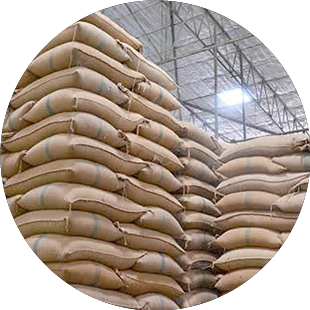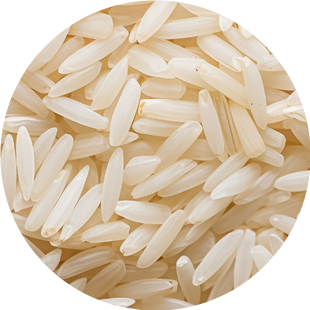At WGIRC | White Gold International Rice Company, we believe that the future we desire is crafted in the present. Today’s dreams are the building blocks of tomorrow’s world. Our vision is to emerge as a global specialty food company, and we are dedicated to realizing this dream with unwavering commitment. We strive for tomorrow’s success through transparent practices and a sustainable business model, channeling concerted efforts to maximize returns and make a positive impact on the world

Founder's Message
“Through the grace of Almighty Allah, White Gold International Rice Company has earned acclaim as one of Pakistan’s foremost rice millers and exporters. Upholding our commitment, we consistently deliver superior quality products to our valued consumers. As one of Pakistan’s largest rice exporters, our unwavering dedication to customer satisfaction stands as a testament to our pledge of excellence.”
Ch. Muhammad Saleem
Founder & Managing Partner
Vision & Mission
WGIRC | White Gold International Rice Company aims to emerge as a market leader by delivering the highest quality products. We strive to achieve this goal through the establishment of enduring customer relationships, coupled with a commitment to innovation and substantial investment in cutting-edge technology. Our focus is on providing comprehensive solutions to meet the diverse needs of our customers.
Basmati Rice overview
Basmati rice, known for its aromatic fragrance and long grain, has a rich history in Pakistan. The cultivation of Basmati rice in the region dates back centuries, and its origin is closely linked to the fertile plains of the Indian subcontinent. The history of Pakistani Basmati rice involves agricultural practices, trade, and cultural significance.

Historical Roots
Basmati rice has been cultivated in the Indian subcontinent for centuries. The word “Basmati” is derived from the Sanskrit words “Vas” (aroma) and “Mati” (full of), reflecting the characteristic fragrance of the rice.
Geographical Significance
The traditional Basmati rice-growing regions in Pakistan include the fertile plains of the Punjab province, particularly the districts of Sheikhupura, Sialkot, and Gujranwala. The unique combination of soil, climate, and water in these areas contributes to the distinct aroma and texture of Basmati rice.

Export Growth
Over the years, Pakistani Basmati rice has gained international recognition for its quality and unique characteristics. The country has become a significant exporter of Basmati rice to various global markets, contributing to its economic importance.
Cultural Heritage
Basmati rice is deeply embedded in the culinary and cultural heritage of Pakistan. It is a staple in various traditional dishes, including biryanis and pulao, and is an integral part of festive celebrations and family gatherings.

Global Recognition
The Basmati rice produced in Pakistan has received Geographical Indication (GI) status, acknowledging its distinct characteristics and tying its identity to the specific geographical region. This recognition helps protect the authenticity and quality of Pakistani Basmati rice in the international market.
Trade Relations
Pakistan has been engaged in Basmati rice trade with various countries, including traditional buyers like the Middle East, as well as emerging markets in Africa and Europe. Trade relations involve adherence to quality standards and certifications to maintain the reputation of Pakistani Basmati rice.
In summary, the history of Pakistani Basmati rice is deeply intertwined with the agricultural practices, cultural heritage, and economic landscape of the region. The distinct aroma, long grain, and culinary versatility of Basmati rice from Pakistan have contributed to its global popularity and recognition in the rice market.

